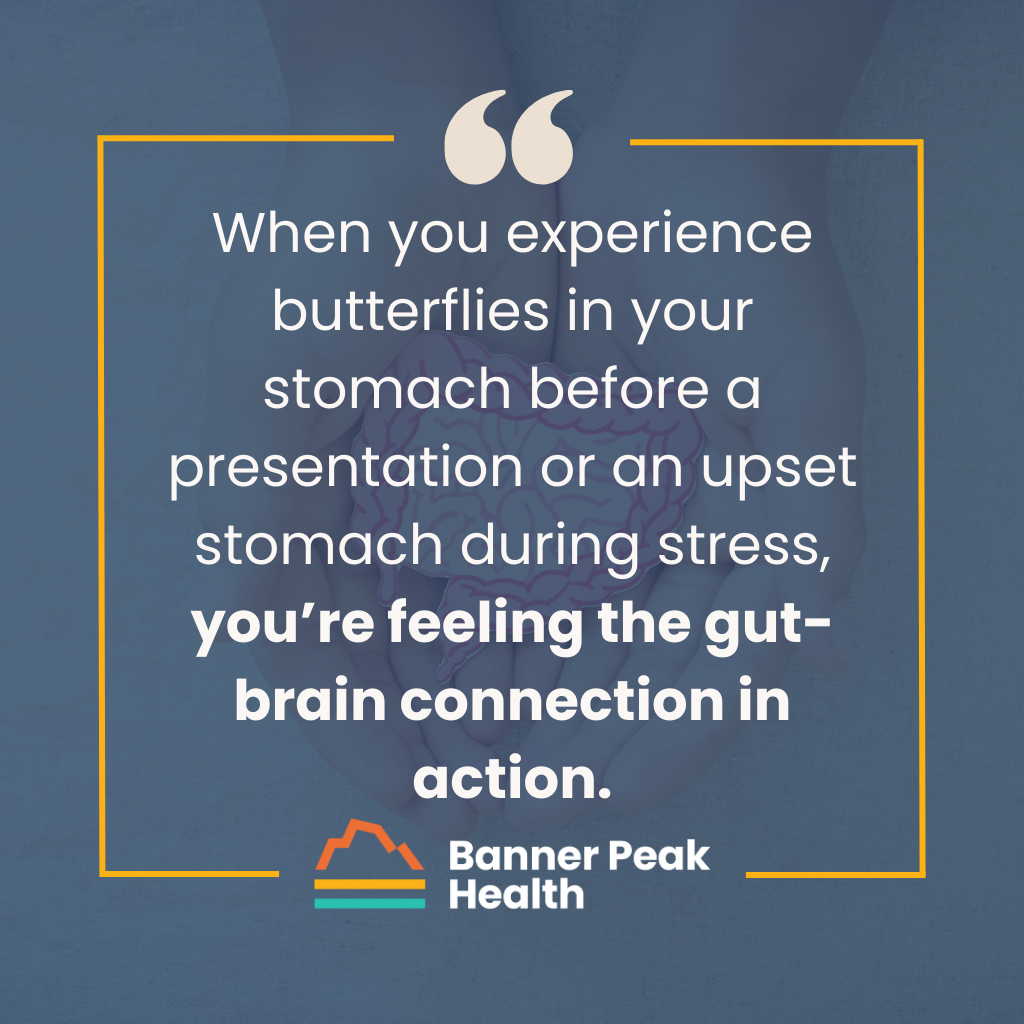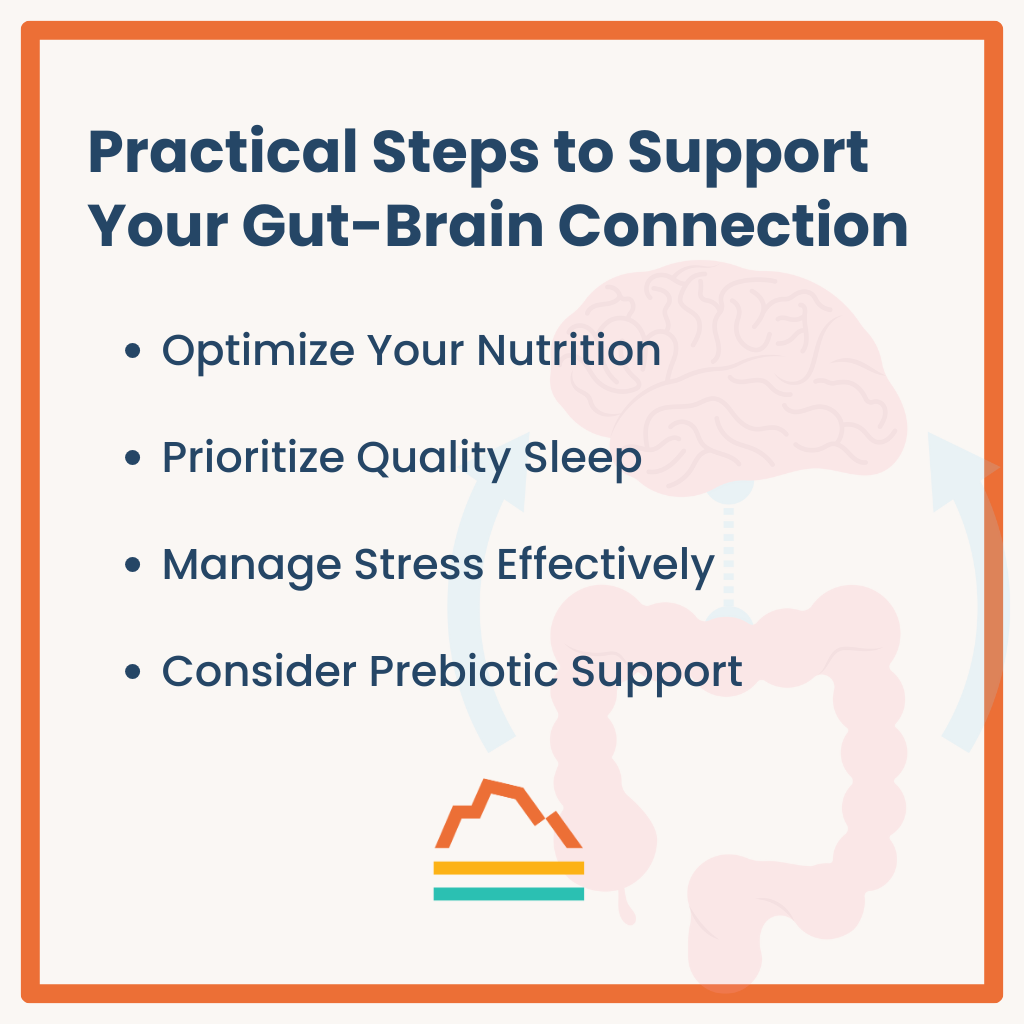For decades, we viewed the gut and brain as separate systems with distinct functions, but recent research reveals an intricate gut-brain connection.
This connection influences everything from our mood to our immune function. But how does the nervous system work with the digestive system exactly? Let’s unpack the gut-brain connection and its influence on your health.
The Magnitude of Your Microbiome
Your body hosts approximately 100 trillion microorganisms, with roughly 39 trillion residing in your gut alone.
These aren’t just bacteria. They include viruses, fungi, and ancient organisms called archaea.
This ecosystem contains 100 times more genetic material than your human cells. The notion that these organisms don’t substantially impact your health is shortsighted. We’re still in the infancy of understanding this complex system and the resulting gut-brain connection.
Understanding the Gut-Brain Connection
When you experience butterflies in your stomach before a presentation or an upset stomach during stress, you’re feeling the gut-brain connection in action. This isn’t coincidental. It’s biology.
Understanding how the nervous system works with the digestive system helps explain why stress affects digestion and how gut health influences mental well-being.
How Does the Nervous System Work With the Digestive System?
The vagus nerve (from Latin, meaning “wandering”), your body’s longest cranial nerve, is the communication highway between your gut and brain. It connects your central nervous system to multiple organs, particularly your digestive tract.
Your gut microbes communicate with your nervous system through several mechanisms:
- Production of neurotransmitters that affect mood and cognition
- Release of immune signals that influence inflammation
- Creation of short-chain fatty acids (SCFAs) that impact brain function
These SCFAs deserve special attention.
When you consume fiber-rich foods, beneficial gut bacteria ferment this fiber to produce SCFAs like acetate, butyrate, and propionate. These compounds enter your bloodstream and influence your health in multiple ways.
For example, butyrate increases brain-derived neurotrophic factor, which supports neuronal development and synaptic plasticity, directly affecting mental health, mood, and cognition.
Understanding Dysbiosis: When Your Gut Loses Balance
Dysbiosis, an imbalance in your gut microbiome, is linked to many health conditions, including:
- Mental health issues (anxiety, depression, ADHD)
- Metabolic disorders (obesity, diabetes)
- Inflammatory conditions
- Neurological problems
This imbalance often results from lifestyle factors such as:
- Poor sleep quality and irregular sleep patterns
- Chronic stress
- The Standard American Diet
- Alcohol consumption
- Insufficient physical activity
When dysbiosis occurs, your gut lining becomes more permeable. Microbial components can then enter your bloodstream, triggering systemic inflammation and even neuroinflammation — one pathway connecting poor gut health to conditions like anxiety and depression.
Practical Steps to Support Your Gut-Brain Connection
Supporting the gut-brain connection doesn’t require expensive supplements or complex protocols. Focus on these evidence-based approaches:
1. Optimize Your Nutrition
The average American consumes only 10–15 grams of fiber daily, far below the recommended 30+ grams. Increase your fiber intake by incorporating more plants:
- Diverse vegetables and fruits
- Nuts and seeds
- Legumes (beans, lentils, chickpeas)
- Whole grains (oats, quinoa)
These foods contain both soluble and insoluble fiber, nourishing beneficial gut bacteria that produce health-promoting compounds.
2. Prioritize Quality Sleep
Poor sleep and dysbiosis form a destructive cycle — both increase populations of unhealthy microbes in your gut.
Establish consistent sleep patterns and prioritize both quantity and quality. Your gut microbes respond positively to regular sleep schedules.
3. Manage Stress Effectively
Regular meditation is associated with increased populations of bacteria that produce anti-inflammatory compounds and short-chain fatty acids.
Other stress-reduction techniques that support gut health include:
- Regular physical activity
- Time in nature
- Breathing exercises
- Mindfulness practices
4. Consider Prebiotic Support
While probiotics receive considerable attention, the evidence hasn’t quite caught up to the marketing hype. Instead, focus on prebiotics — the food that nourishes your existing beneficial bacteria.
If you struggle to reach optimal fiber intake through diet alone, consider a prebiotic fiber supplement. These supplements help feed your existing beneficial microbes rather than attempting to introduce new ones.
Today’s Takeaways
The communication between your nervous system and digestive system forms a critical foundation for overall health. While research continues to evolve in this field, we know that nutrition, sleep, stress management, and physical activity provide a solid foundation for nurturing your gut-brain connection.
At Banner Peak Health, we understand how the nervous system works with the digestive system and incorporate gut health strategies into our approach to patient care.
This overview is just the beginning of our exploration into how the nervous system works with the digestive system. Future blog posts will dive deeper into specific aspects of this gut-brain connection and how it influences various health conditions.

Ari Katz, MD
Dr. Katz has dedicated himself to preventative medicine and building meaningful patient relationships. He joined Banner Peak Health as a concierge physician to provide the personalized, comprehensive care that allows him to focus on his four pillars of wellness and help patients achieve their optimal health.





